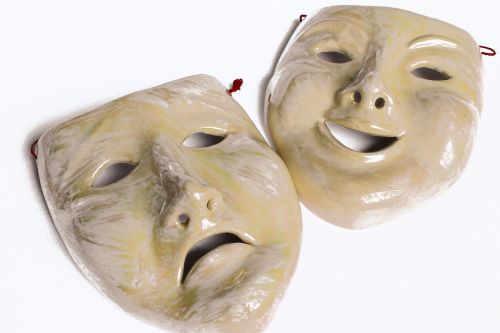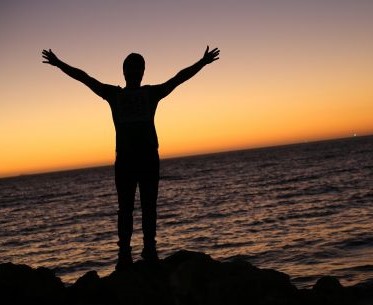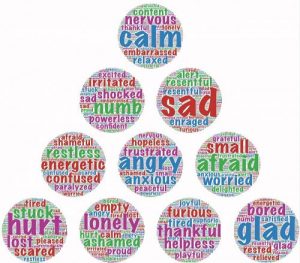How can we understand our reactions and responses to the current time?

This coronavirus pandemic is a strange, roller coaster time of ups and downs in our daily lives. We are very likely worried about others and ourselves, on alert, and at the same time want distraction and any good news stories. Maybe our routines and immediate plans are currently up in the air……
Yet we live in the same place with the same view out of the window and with the same community around us. How much of our daily lives have changed and for how long? This coronavirus pandemic will pass. We live in a country with a National Health Service that is free, staffed with skilled hard-working doctors, nurses, carers and other valued, dedicated staff. Staff and supplies are under pressure but we are perhaps relieved we live in the UK. We will also be concerned about our sisters and brothers worldwide. We are told news every day. This is a mixture (currently in March) of worsening statistics, news stories of dedicated work by medical and local authorities, communities singing and exercising from balconies and lots of other creative ways to stay connected and fit, despite this new term “social distancing.” Some of us are rationing our intake of worrying news. We may also be hearing heart-warming stories and seeing cartoons that make us smile.
Life’s Ups and Downs

Many of us are feeling all kinds of emotions. Some remember previous national and personal hard times. We know from life experience that we have mostly weathered and come through loss of many kinds: family, health, money and work difficulties, ruptured relationships, uncertainties and unexpected challenges. We have also experienced many positive aspects in our lives, and more to come!
And… we have got through to where we are now. Some have had a lifetime of raising families, years of work, acquiring skills and knowledge, having periods of happiness and fulfilment and may on the whole be mostly satisfied about the small and large contributions we have made, and in some ways continue to make to others.
However, at present we may find our mood and outlook changes during the day so that we are experiencing ups and downs. I have just spoken to my 90 year old mother a hundred miles away. She spent the morning reading (in her view) a depressing newspaper article about future country finances and then sat in the sunshine in her garden enjoying the flowers. This morning I felt anxious listening to the news, but then listened to The Archers and went out for my daily walk and saw the daffodils, looking colourful and beautiful whatever is going on around them despite the earlier floods. They flower every year whatever is happening!
We may be worried about our families and friends. Are they well? Will they stay well? Will we manage to get our food and other requirements? Will those unable to work have enough money to manage, jobs to go back to and have time and space for their children to do some schoolwork, have some fun and ways of releasing their energy? Will teenagers and others facing external exams be supported through the next few months and through the next academic and life changes in their lives?

And how do we find peace and distraction when we need that? We have the wisdom and experience of older age to know how we cope in difficult times. Perhaps we pray more and find our religious belief helpful and then we can cry out in our own way: why is this happening to me and to them? Sometimes we doubt our religious faith. Do we have the resilience to cope with this uncertainty? How long will this last? Will we stay well?
I worked for many years supporting people through bereavement and loss, and to a limited extent I still do! You may wonder why I am mentioning loss. We may currently be fearing loss or bereavement or worry about change and having to live a different life for the moment. Our routines and networks are disrupted. We may be grieving for the freedom to go out and meet others or have visitors calling round. We wonder about people’s jobs, and anxieties about paying bills, rents and mortgages, Perhaps we have “lost” our peace of mind?
A Loss, Change and Bereavement Model
One of the most useful, enduring bereavement and loss models, in my view, is from Stroebe and Schut that focuses on how we each individually may respond to loss, bereavement and change, including a changed perception of our current life and the world around us. You may be familiar with it. It doesn’t matter if you aren’t. After many years of offering it to people I have learnt a number of points:
- You are the person who knows best how you think and feel and you are the expert in that, even if at times it doesn’t seem like that. Others can try to empathise with how you think and feel.
- There are two main types of responses we may find we are using, as follows:

a) FEELINGS – You may respond to loss, change and bereavement by feeling sad, panic, angry, guilty, disorientated and experience a number of emotions. You may be very aware of feelings and trying to work through your emotions of loss.
b) MANAGING & PLANNING – You may be someone who manages loss, bereavement and the perception of a changing world by trying to plan and manage it, allowing yourself to plan for the future, be distracted and sometimes even deny to yourself it is happening.

3. Neither of these ways are either right or wrong – the way of feeling the emotions, or the way of planning a way through – they are both alright and are just how they are.
4. We are all different but you may encounter some difficulty if you get stuck either with only feeling the feelings or only trying to cope and plan too much.
5. We usually learn to oscillate, move between, expressing emotion and working towards a future. So, a mixture of both a) feeling the feeling and b) managing the situation towards the future is needed, so this is not an “either/or” but a “both and” way of dealing with our lives. That is why it can seem like a roller coaster experience: up and down.
We all have our existing losses and now with Coronavirus we are dealing with the anxiety of the immediate future. This can compound the feeling of loss for us depending on the losses we are already experiencing.
Resilience

An important point to offer is that those working with people who are experiencing the challenges and positives of everyday lives often use the word resilience. Here resilience isn’t defined as being brave and positive all the time. What is meant here, in my view, is that a resilient person is one that can hold the difficult and positive stuff together and continue in their lives.
We all have ups and downs but in older age we have usually realised that we have come through a lot of life and can hold what we have experienced from the good times and the challenging experiences at the same time. So we are usually quite resilient even when it doesn’t feel like it!
Let us keep supporting each other through this in whatever way we can. When this corona virus time comes to an end we can look back together and see how we came through!
Pippa Bonner March 2020
